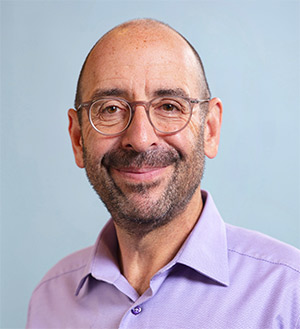
By Gwyneth K. Shaw
The collapse of the cryptocurrency exchange FTX last fall sparked an abrupt change in the conversation about digital currency and how — or even whether — it should be regulated by the same authorities that govern other financial products and markets.
Recently, the Berkeley Center for Law and Business (BCLB) hosted a virtual conference that sought to isolate some answers to the questions swirling around the crypto industry. More than 1,000 people registered to watch it live, and many more are expected to watch the three-hour symposium on demand.
The conference was co-sponsored by the nonprofit International Institute of Law and Finance and the Berkeley Center for Responsible, Decentralized Intelligence (RDI), a new multidisciplinary UC Berkeley initiative.
The event marked the latest case of BCLB’s focus on crypto and its pros and cons, spanning more than five years. For example, when FTX imploded in November, the center ran a popular online seminar offering fresh analysis of the news. Regulators and practitioners encouraged BCLB to keep it up, says Berkeley Law Professor Frank Partnoy, one of its faculty leaders, and the conference grew out of that idea.

“We thought we were in a unique position to bring together expertise from law, business, and computer science to provide some reasoned discourse about cryptocurrency regulation, where the conversation has been polarized and unfortunately not all that helpful,” he says.
The discussions were divided into three panels, on market structure, stablecoins, and token disclosure. In between, two federal regulators joined in for “fireside chats”: Graham Steele, the assistant secretary for financial institutions at the U.S. Department of the Treasury, and Kristin Johnson, a commissioner at the Commodity Futures Trading Commission, which regulates the derivatives market.
New directions?
In addition to Partnoy, the conference featured a number of BCLB powerhouses, including Professor Robert Bartlett — a leading expert on market structures — and Jai Massari, a fellow at the center and a Berkeley Law lecturer who’s the chief legal officer of Lightspark, a startup working in the crypto space. RDI Co-Director Dawn Song, a professor in UC Berkeley’s computer science department and an expert on digital security and blockchain, was also a panelist.
“For this conference, we needed expertise at the intersection of law, business, and computer science,” says Partnoy, who’s also a faculty affiliate at Berkeley’s Haas School of Business and the Simons Institute for the Theory of Computing. “Fortunately, Berkeley has the world’s greatest experts in all three areas.”
Panelists dug into some of the crypto industry’s most pressing questions. One major concern is whether digital currencies and exchanges are due for what Steele called a “Dodd-Frank moment,” referring to the sweeping reforms enacted in 2010 to reshape the financial services sector after the financial crisis of 2007 and 2008.
Since cryptocurrencies were inherently designed to be decentralized — and therefore exist outside the regulatory structure of governments — whispers of change have caused alarm. But in the aftermath of the FTX scandal, some lawmakers and consumer advocates are pushing for new controls.
Much of the discussion at the conference centered on how to think about different aspects of the industry, and whether they have counterparts in existing financial regulations or should be considered completely novel.
“This whole discussion goes back to ‘what is money?’” University of Michigan Professor Jeffrey Zhang said.
BCLB wants to lead this discussion, Partnoy says, as part of its broader mission to foster ideas and dialogue about important topics in law and business. At the moment, with crypto a leading area of interest, the center expects to continue to focus on it.
Once the conference ended, he said, the center was flooded with requests for the video so real-time viewers could share it with friends and colleagues. Partnoy says he particularly hopes regulators are able to tune in.
“I hope the conference will mark an important turning point for thinking about cryptocurrency regulation, and I think it will be must-viewing for regulators in the area,” he says. “It’s important to us to be able to make these programs publicly available for free, and to preserve the recordings so that anyone, anywhere can watch and learn.”